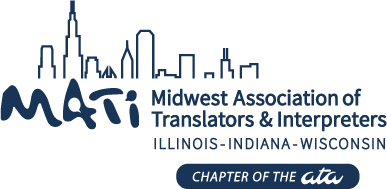The Midwest Association of Translators and Interpreters (MATI) supports Minnesota court interpreters who, for the first time, are coming together in solidarity and as a united front to advocate for better compensation while ensuring equal access to justice for ALL.
Language access is a right. Courts in the United States are required to provide interpreters under Title VI of the Civil Rights Act of 1964, as amended, 42 U.S.C. § 2000d et seq. The right to a court interpreter for non-English-speaking and limited-English-speaking parties and witnesses is implicit in the Fifth, Sixth, and Fourteenth Amendments to the United States Constitution.
The Director of the Administrative Office of the United States Courts prescribes, determines, and certifies the qualifications of persons who may serve as certified interpreters to ensure that everyone receives the same rights as English speakers in the legal system. To become a certified interpreter for our courts, an interpreter must complete rigorous studies, training, and testing to qualify for the job. Many, in fact, study and practice for years before taking their exams and hold advanced degrees in their fields. In court, they must not only be able to interpret from a foreign language into English, but they must also be able to do so consecutively and simultaneously. They must also be able to sight translate written documents. And they need to be familiar with legal procedures, terminology, and ethics, and be able to perform under extreme pressure in a courtroom.
The complex work of court interpreters and their importance to the judicial process should be recognized and properly compensated. When the courts don’t compensate certified interpreters in accordance with their education, professional experience, and skill level, language access suffers. That’s because without proper compensation, it’s very difficult to attract enough certified interpreters to adequately staff the courts. The vast majority of interpreters work as independent contractors with no benefits. They typically bill 15 to 20 hours per week and rarely work full days in a courtroom. As a result, many qualified interpreters who could provide meaningful language access in the courts instead choose to work in the private sector for higher pay.
MATI stands with interpreters in advocating for better compensation in the professional field of court interpreting, in order to ensure language access for all.
The MATI Board of Directors
Credits for some of the text quoted above to:
AMENDMENTS - 1984—Subsec. (c). Pub. L. 98–473 added subsec. (c). § 1827. Interpreters in courts of the United States.
Civil Rights Division-U.S. Department of Justice
Michael Larson (retired attorney)